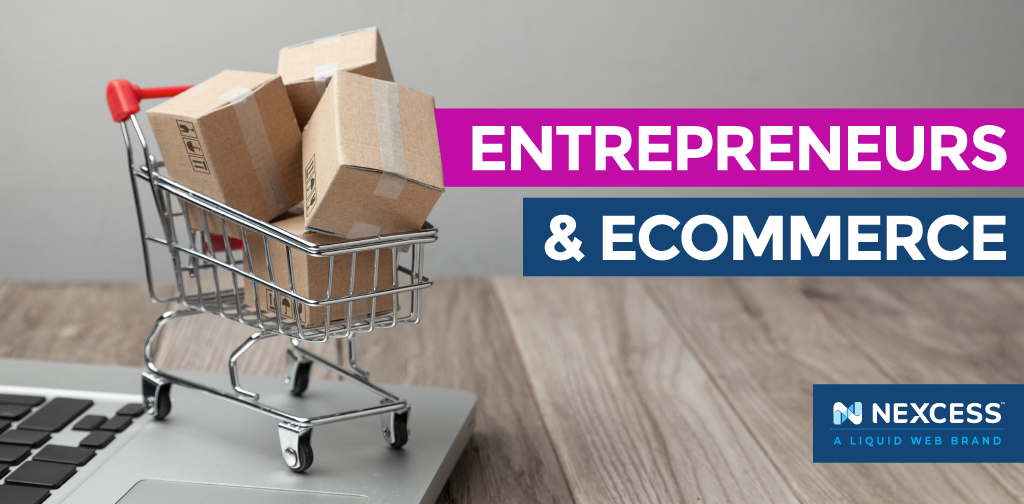Ecommerce is an incredibly powerful tool for small businesses. Understanding how ecommerce is useful to entrepreneurs can persuade even the most wary of small business owners to open an ecommerce store.
In this post, we examine what ecommerce is and the top advantages of ecommerce for small business owners.
What is Ecommerce?
Ecommerce is the selling of goods or services online. Many people assume that ecommerce only refers to selling traditional retail products like clothing or home goods. But, ecommerce encompasses a wide range of products and services, from used clothes to subscriptions for coaching services.
The two main types of ecommerce are:
- Business-to-Consumer (B2C). This type of ecommerce is what most entrepreneurs are familiar with, selling products to the public.
- Business-to-Business (B2B). B2B ecommerce covers ecommerce transactions between two business entities.
Benefits of Ecommerce to Entrepreneurs and Small Businesses
The advantages of ecommerce to entrepreneurs and small businesses all relate to the profit potential and the relative ease of setting up an ecommerce business. Each of the following benefits underscores the importance of ebusiness to entrepreneurs.
1. Lower Upfront Costs
With no building to rent or store displays to stock, entrepreneurs can start an ecommerce business for much less than traditional brick-and-mortar businesses. Other than securing a website and the right ecommerce business license, the startup costs are minimal. If you’re selling services or decide to sell products using a dropshipping partner, you don’t even have to purchase inventory to start your business.
2. Works With Multiple Types of Products and Services
Ecommerce supports various business models. For example, a brick-and-mortar store might add ecommerce as they develop their omnichannel ecommerce sales strategy. But more realistically, for an entrepreneur, ecommerce can be a main or supplemental source of revenue. For example, a consultant or coach might add ecommerce to sell books or other merchandise. They also could use the ecommerce platform to sell coaching packages.
4. Ecommerce is Growing
Ecommerce isn’t new. People were already shopping online before the COVID-19 pandemic. The pandemic and the resulting extra time people spent at home only increased ecommerce sales. Your customers are shopping online. If a small business wants to be successful, it needs to be selling online to meet customers’ expectations.
Sell your products online, worry-free
Officially recommended by WooCommerce, our hosting is made for online businesses like yours
5. Ecommerce is a 24/7 Sales Channel
With ecommerce, an entrepreneur can make money while they sleep. An ecommerce business operates 24 hours a day, seven days a week. But that doesn’t mean the business owner is working that much. You need staff to greet customers and ring up sales every hour your store is open with a traditional business. With ecommerce, your website welcomes customers and processes transactions. You just need to spend a couple of hours preparing orders and updating the website.
6. Work From Home or Anywhere
Another advantage of ecommerce for entrepreneurs is the ability to work wherever they’d like. Many small business owners don’t have the budget to rent office or retail space. With ecommerce, you can launch your business from your garage, basement, or spare bedroom.
7. Allows for Concept Testing
Ecommerce sites provide a wealth of ecommerce analytics to guide entrepreneurs in making business decisions. Small business owners can see which products and marketing campaigns resonate best with their customer base by analyzing web traffic and sales trends.
8. Easily Scales
The low startup costs and flexible schedule make ecommerce one of the most scalable business models. You could start an ecommerce business as a side hustle without quitting your day job. As the business grows, you can consider hiring more people or adding additional products.
Ecommerce allows entrepreneurs to test and optimize their business with minimal risks. Traditional businesses with a physical storefront require leasing or buying a space, hiring a team, and stocking a store. You have to spend money on new locations when you want to grow.
Scaling an ecommerce business is easier. You can hire people to work remotely if you want and consider only hiring part-time or seasonal employees.
Once you’ve mastered your basic ecommerce store, you can tackle more advanced configurations as outlined in our post on headless ecommerce.
Greatest Advantage of Ecommerce for Entrepreneurs: It’s Easy to Set Up
Setting up an ecommerce store doesn’t have to be challenging, even for the most technically novice of entrepreneurs.
It's easy to get started with WooCommerce. Based on WordPress, you can build your online store in just a few clicks. All you need to do is tweak the design to match your brand and add in your products.
Fully managed WooCommerce hosting from Nexcess takes care of the technical configurations. See why over 500K sites and stores host with us.
And if you're looking to host a resource-hungry website, take a look at Liquid Web's full range of WordPress hosting solutions.

